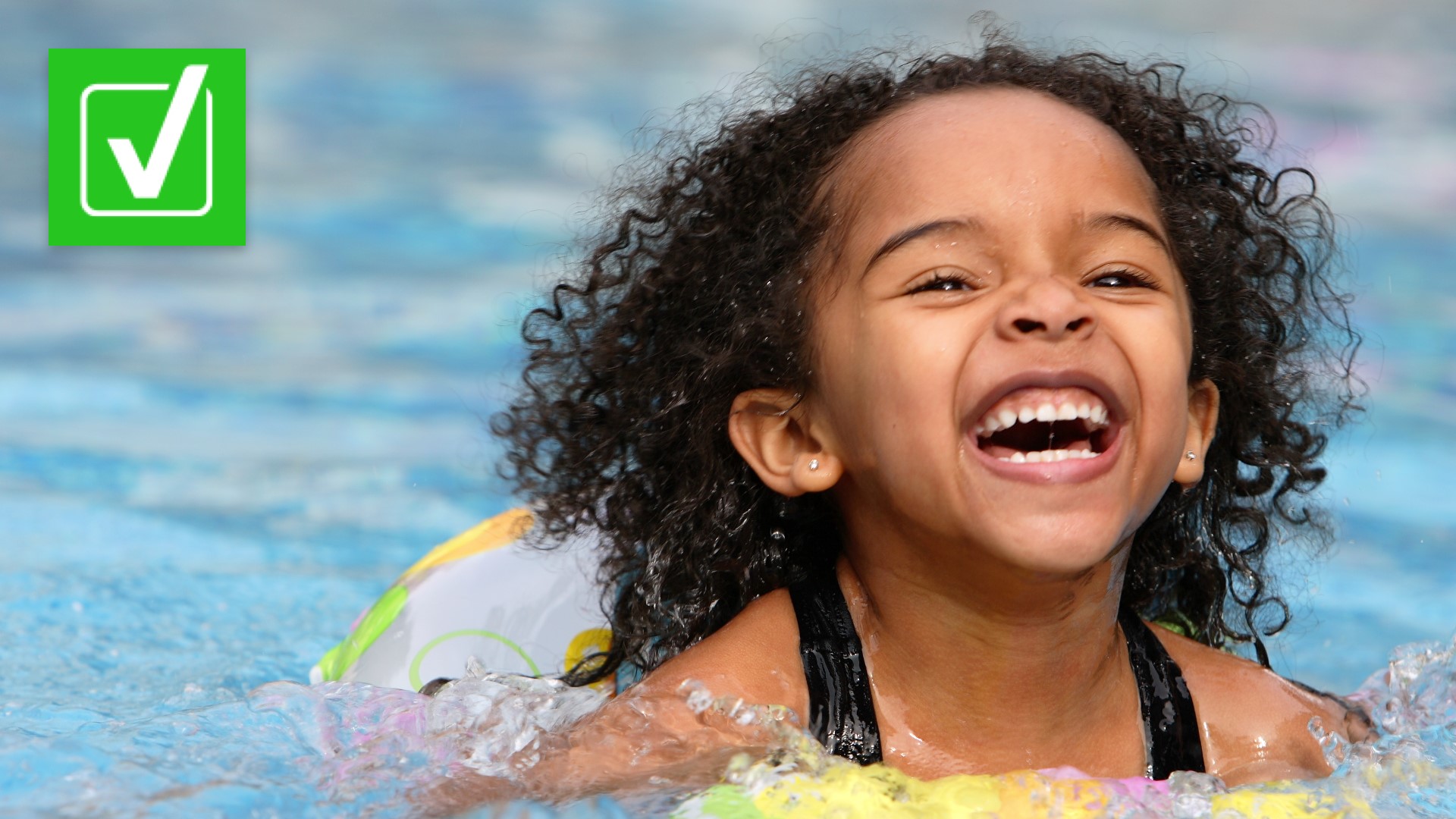Summer is nearly here and as temperatures warm up throughout the country, people are looking for ways to cool off. Many pools last year were closed due to the COVID-19 pandemic. But this year, with restrictions being eased, many pools have reopened.
As people consider fun summer activities, they’ve gone to Google for answers. Google Trends data showed an uptick last week in searches for “are swimming pools safe during COVID.”
THE QUESTION
Is it safe for children to swim in a public pool as the COVID-19 pandemic continues?
THE SOURCES
- Centers for Disease Control and Prevention (CDC)
- Dr. Ravina Kullar, infectious disease specialist and epidemiologist
- Dr. Tina Tan, professor of pediatrics at Feinberg School of Medicine at Northwestern University, pediatric infectious diseases physician at Robert H. Lurie Children's Hospital of Chicago
- Dr. Janet Englund, professor of pediatrics and pediatric infectious diseases at Seattle Children’s Hospital and University of Washington
THE ANSWER
Yes, it is safe for children to swim in public pools during the COVID-19 pandemic, although there are other risks to consider when at a public pool setting.
WHAT WE FOUND
The Centers for Disease Control and Prevention (CDC) says there are no scientific reports that the virus that causes COVID-19 spreads through water in pools, hot tubs or water playgrounds.
“The virus mainly spreads when respiratory droplets from infected people land in the mouths or noses of others or possibly when inhaled into the lungs by others,” the CDC says.
Dr. Ravina Kullar, an infectious disease specialist and epidemiologist, said there’s a reason COVID-19 doesn’t spread in pool water.
“The great news is that chlorine actually inactivates COVID-19 or SARS-CoV-2 virus, so it will kill the virus, and it’s really, really highly unlikely that you're going to get COVID-19 in the pool,” Kullar said.
Dr. Tina Tan, a professor of pediatrics at the Feinberg School of Medicine at Northwestern University and a pediatric infectious diseases physician at Robert H. Lurie Children's Hospital of Chicago, said swimming is one of the safest summertime activities for a child.
“When you think about swimming, people tend to naturally not be on top of each other when they swim or even when they play,” Tan said. “And once you're underwater, you're not going to be able to transmit COVID from one person to another.”
Kullar and Tan said the concern isn’t spreading COVID-19 through pool water, but potential transmission in the pool setting. That’s because there could be a crowd of people, which is a factor Dr. Janet Englund, a professor of pediatrics and pediatric infectious diseases at Seattle Children’s Hospital and the University of Washington, said parents should consider when taking their children to a public pool.
“You can imagine a swimming pool, you know, a 25-yard swimming pool, that's maybe 10 yards apart; you can imagine having five kids sitting on the edge of it each five or six feet apart, and having their lane. That to me sounds quite safe,” Englund explained. “You can imagine that same swimming pool having 25 kids sitting in a 10-yard, five-lane pool and they'd be sitting one foot away from each other. And to me, that doesn't sound safe.”
Another factor to consider is whether the pool is inside or outside. The CDC says indoor spaces present more of a risk to contract COVID-19 than outdoor spaces.
“So, you're indoors, low ventilation, you don't know who is vaccinated, who isn't. You don't know the different households, what their backgrounds are, what their COVID-19 practices are, and those are all factors to consider in an indoor pool,” Kullar said.
Parents should also consider their child’s health, especially if they’re immunosuppressed, Kullar said. Many children aren’t vaccinated as only people 12 and older are eligible to get the Pfizer COVID-19 vaccine. Again, Tan said it’s outside of the pool where children who are not vaccinated should practice caution.
“I would say that if they're in the pool, they're not going to have a problem,” Tan said. “It's really the areas outside the pool itself, where if there are a lot of people, you may want to get some of these younger children to wear masks.”
On its website, the CDC has a list of steps, last updated Feb. 1, that pool operators can take to limit the spread of COVID-19. The recommendation includes social distancing and encouraging the use of masks when not in the pool. In the pool, masks are not advised out of safety concerns.
More from VERIFY: Yes, you can get a free ride to and from your COVID-19 vaccine appointment, and free child care too
VERIFY
Our journalists work to separate fact from fiction so that you can understand what is true and false online. Please consider subscribing to our daily newsletter, text alerts and our YouTube channel. You can also follow us on Snapchat, Twitter, Instagram or Facebook.

